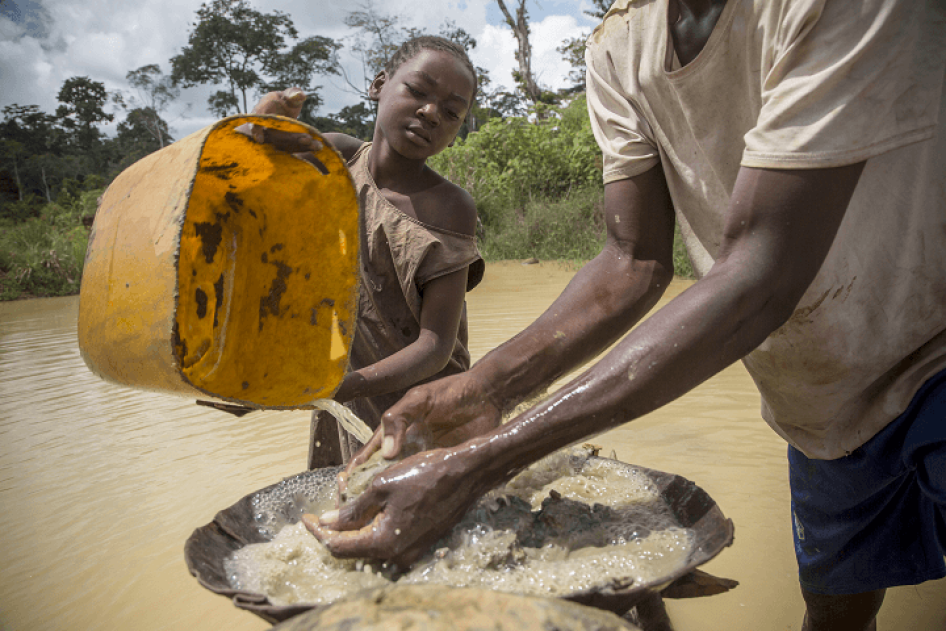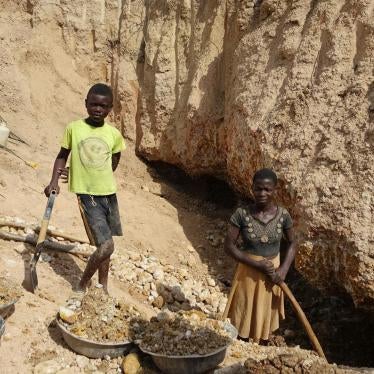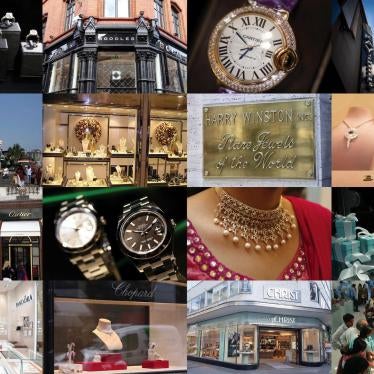These days, jewellers use many terms to describe their efforts to ensure that their products aren’t the result of abusive mining practices: “Responsible sourcing,” “ethical sourcing,” “responsible business conduct,” and “sustainable luxury” for example. Many jewellers want to be sure to avoid unwittingly using gold mined by children—a valid concern, as I found out when I visited gold mines in Ghana, Mali, Tanzania, and the Philippines and met children working in deep pits and processing gold with mercury.
But what should jewellers do to avoid contributing to human rights abuses in their supply chain?
It’s clear jewellers should make sure they have traceable, transparent supply chains that are regularly assessed for human rights conditions. Let’s unpack this.
Traceability
First, jewellers need to make sure they know where their gold, diamonds, or other minerals come from. They need to map their supply chain. How else can they find out what human rights issues are lurking in their supply chain?
An increasing number of small jewellers are doing this, for example Anna Loucah, a UK jeweller who sources most of her gold from traceable small-scale mines in Peru. Large jewellery companies can do this too. Tiffany and Co. is able to trace all its mined gold back to one mine of origin.
The Swiss jeweller Chopard and the French jeweller Cartier can trace at least a portion of their gold back to the mine. And gold refiners can, for a higher price, refine gold in segregated batches to preserve traceability.
Human rights assessments
Second, jewellers need to find out what human rights concerns are present in their supply chains and address them. This requires visits to the mines of origin and regular monitoring to investigate concerns about labour rights, indigenous people’s rights, health rights, and the protection of civilians in war. Human rights experts should conduct these assessments. If abuses are found, a company needs to take corrective action.
Companies can build human rights assessments into their operations in a variety of ways. One option is to source from rigorous certification schemes that monitor conditions in mines and reduce human rights risks that way, such as Fairtrade or Fairmined.
Anna Loucah sources from Fairtrade mines. Chopard sources part of its gold from Fairmined certified mines in Latin America. But companies can also source from mines that are not part of any certification scheme. Sometimes they source directly from mines that are supported and monitored through programs by nongovernmental agencies. Others conduct assessments themselves or use qualified auditors to identify and respond to human rights concerns in their supply chain.
Transparency
Finally, jewellers need to be transparent about their actions. Some companies, including Tiffany and Co., Cartier, and the Danish jeweller Pandora publish annual reports on their efforts to source responsibly. This is good, but more can still be done. In particular, companies should disclose the human rights risks they have identified in their supply chains, the steps they have taken to address them, and the results of external audits. Jewellers should deal publicly and actively with risks. Pandora has made a step in this direction by recently disclosing that its supply chain audits found problems needing addressing in the areas of health and safety and working hours.
Companies should also make their suppliers public. Such transparency is vital to ensure that affected communities, miners, consumers, and the wider public can scrutinize the actions of companies and match the companies’ words to their actions.
Consumers increasingly demand that jewellers act responsibly. But not only that—international norms on mineral sourcing, such as the due diligence guidance developed by the Organization for Economic Co-operation and Development (OECD) spells out how companies in the mineral supply chain should assess and mitigate risks and be transparent about it.
Jewellers owe it to their consumers and to communities they get their minerals from to source truly responsibly.










